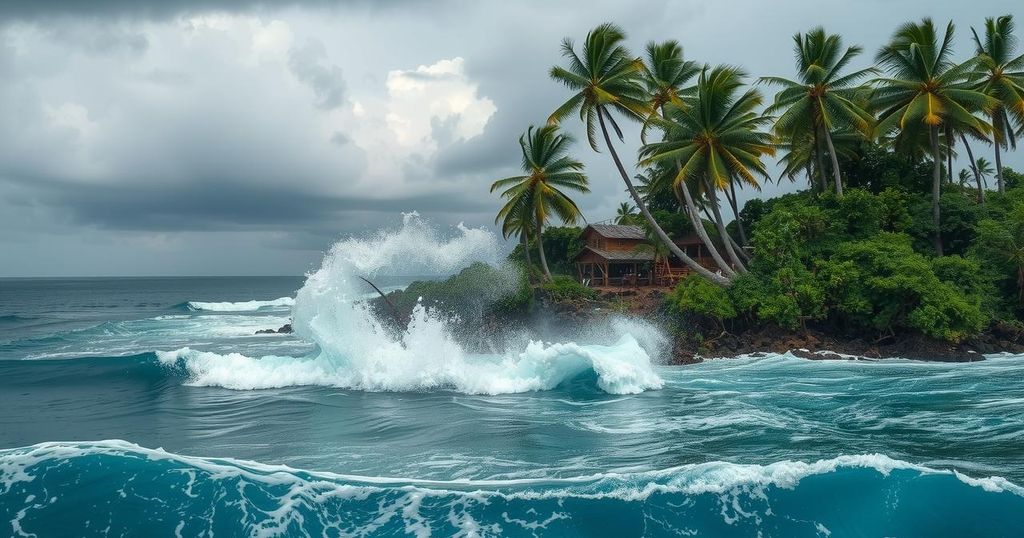Tropical Cyclone Chido Causes Widespread Devastation in Mayotte
Tropical Cyclone Chido devastated Mayotte, leaving hundreds feared dead. The storm, equivalent to a Category 4 hurricane, caused extensive damage to critical infrastructure and is predicted to have a high casualty toll due to the impoverished conditions prevalent in the region. Climate change factors have contributed to the cyclone’s intensity, with recovery efforts ongoing amidst severe challenges affecting the population.
Tropical Cyclone Chido has unleashed widespread devastation in the French territory of Mayotte, resulting in hundreds of casualties as it struck with the force of a Category 4 hurricane. With wind speeds exceeding 155 mph, Chido is declared the most intense storm recorded to hit Mayotte, leading authorities to warn that the death toll, currently at 20, could rise significantly. Mayotte Prefect François-Xavier Bieuville estimated that the fatalities could approach a thousand as recovery efforts continue to be hampered by the storm’s destruction of critical infrastructure like hospitals and airports.
French Prime Minister François Bayrou characterized Cyclone Chido as exceptionally severe and emphasized the ongoing challenges in assessing the impact. The cyclone directly hit densely populated areas, particularly where a large portion of the population lives in poverty. As rescuers begin clearing roads and establishing a temporary hospital, initial reports indicate that many homes, especially in the slums, have been reduced to rubble, leaving residents without essential services.
Moreover, the cyclone’s rapid intensification in unusually warm ocean waters has been linked to climate change, with experts indicating that warmer oceans contribute to the formation of more powerful storms. The intensity of Cyclone Chido marks a concerning trend in the region, correlating with expectations outlined by climate scientists regarding the increased severity of tropical storms in response to global warming. This situation has compounded the already precarious living conditions in Mayotte, particularly for the undocumented immigrant population who are most affected by such extreme weather events.
As the recovery efforts proceed, the local and national responses are focused on providing essentials like food and medical assistance to those affected, while highlightening the broader need for improved resilience against future cyclones in vulnerable regions such as Mayotte.
Tropical Cyclone season in the Southwest Indian Ocean spans from November 15 to April, during which an average of nine tropical storms and four hurricanes emerge. Cyclones, hurricanes, and typhoons are different terminologies used based on the ocean basin where they form, yet they share the same underlying meteorological processes. Mayotte, a part of France, is one of the poorest territories in the European Union and is notably affected by the influx of undocumented migrants, heightening the vulnerability of its population to extreme weather events. The storm’s severity was exacerbated by its trajectory that allowed it to avoid weakening upon approaching the island, a phenomenon typically observed with cyclones interacting with Madagascar. The considerable economic and social challenges faced by Mayotte’s inhabitants, alongside the destruction wrought by Cyclone Chido, underline the urgent need for comprehensive disaster preparedness strategies in the face of increasingly powerful storms linked to climate change.
The aftermath of Tropical Cyclone Chido in Mayotte has resulted in catastrophic damage and tragically high casualty estimates. The cyclone’s unprecedented intensity reflects a troubling trend tied to climate change, as warmer ocean temperatures intensify storms. As authorities work to aid the local population, there is a necessity for strategic planning for future resilience against such natural disasters, particularly given the region’s socio-economic vulnerabilities.
Original Source: www.spokesman.com




Post Comment